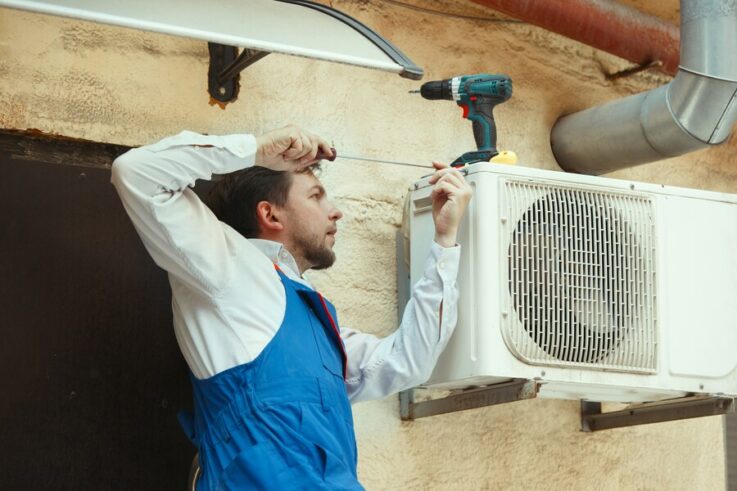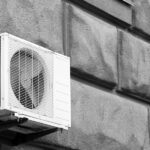
Emergency HVAC Repair: What to Do
Emergency HVAC Repair: What to Do
Emergency situations with HVAC systems can be stressful and daunting. When your heating, ventilation, or air conditioning system malfunctions unexpectedly, it can disrupt your comfort and even pose health risks in extreme weather conditions. In this blog post, we’ll explore the essential steps to take during an HVAC emergency.
From troubleshooting techniques to knowing when to call for professional help, we’ll cover everything you need to know to handle an HVAC crisis effectively. Don’t let a sudden breakdown catch you off guard—prepare yourself with the knowledge to tackle emergency HVAC repair head-on.
Understanding HVAC Emergencies: What Constitutes an Emergency?
Understanding HVAC emergencies is essential for homeowners to respond effectively to sudden system failures. An HVAC emergency constitutes any situation where the heating, ventilation, or air conditioning system malfunctions unexpectedly, posing immediate risks to comfort, health, or safety. Examples include complete system breakdowns, gas leaks, refrigerant leaks, or failures during extreme weather conditions.
Additionally, any issue that compromises indoor air quality or disrupts essential functions warrants urgent attention. Recognizing the severity of these situations empowers homeowners to take prompt action, whether through DIY troubleshooting or contacting a licensed HVAC technician, to resolve the emergency and restore comfort and safety to the home.
Signs of an HVAC Emergency: Recognizing Red Flags
Recognizing the signs of an HVAC emergency is crucial for preventing further damage and ensuring your safety and comfort. Here are several red flags that indicate an HVAC emergency:
- Complete Loss of Heating or Cooling: If your HVAC system suddenly stops producing hot or cold air, especially during extreme weather conditions, it could indicate a serious problem.
- Unusual Noises: Loud banging, grinding, or squealing noises coming from your HVAC system are often signs of mechanical issues that require immediate attention.
- Strange Odors: Foul or burning odors emanating from your HVAC vents could indicate electrical problems, overheating components, or even gas leaks, all of which pose safety risks.
- Visible Leaks: Any visible leaks, such as water or refrigerant, around your HVAC system should be addressed promptly to prevent damage to your home and system.
- Constant Cycling: If your HVAC system is constantly turning on and off without reaching the desired temperature, it may be struggling to maintain proper functionality, indicating a potential emergency.
What to Do When Your HVAC System Fails
Experiencing a failure in your HVAC system can be stressful, especially during extreme weather conditions. However, knowing what to do in such situations can help mitigate the inconvenience and restore comfort to your home. Here are five steps to take when your HVAC system fails:
- Check the Thermostat: Ensure that the thermostat is set correctly and functioning properly. Sometimes, a simple adjustment can resolve the issue.
- Inspect the Circuit Breaker: Check the circuit breaker or fuse box to see if a tripped breaker or blown fuse is causing the problem.
- Change Air Filters: Dirty air filters can restrict airflow and cause system malfunctions. Replace them if they are dirty or clogged.
- Verify Power Supply: Ensure that the HVAC system is receiving power. Check the power switch near the indoor unit and the external disconnect switch near the outdoor unit.
- Contact a Professional: If you’re unable to identify or resolve the issue on your own, it’s time to call a licensed HVAC technician for assistance. They have the expertise and equipment to diagnose and repair the problem efficiently.
Protecting Yourself and Your Home During an Emergency
During an HVAC emergency, prioritizing safety is paramount. If you suspect a gas leak, evacuate your home immediately and call your gas company or emergency services. In case of electrical issues, avoid touching any exposed wires or components to prevent the risk of electric shock. Additionally, if there’s a refrigerant leak, ventilate the area and avoid inhaling the fumes.
When waiting for professional assistance, consider using portable heaters or fans to maintain a comfortable temperature. Lastly, keep children and pets away from the affected area to minimize potential hazards. Taking these precautions ensures the safety of your household during an HVAC emergency.
When to Call for Professional Help: Knowing Your Limits
Knowing when to call for professional HVAC help is crucial for preventing further damage and ensuring safety. If you encounter complex issues such as refrigerant leaks, electrical malfunctions, or major system breakdowns, it’s time to enlist the expertise of a licensed technician. Attempting DIY repairs beyond your skill level can exacerbate the problem and pose safety risks.
Trust your instincts—if you feel unsure or overwhelmed, it’s best to defer to professional assistance. Promptly calling for help when needed can save you time, money, and hassle in the long run, while ensuring your HVAC system is properly repaired and maintained.
Tips to Avoid Future HVAC Emergencies
Ensuring your HVAC system runs smoothly is essential for maintaining comfort and safety in your home. By implementing preventive measures, you can avoid future emergencies and extend the lifespan of your system. Here are five tips to help you keep your HVAC system in top condition:
- Regular Maintenance: Schedule annual inspections and maintenance with a licensed HVAC technician to catch potential issues early and keep your system operating efficiently.
- Change Air Filters: Replace air filters every 1-3 months to prevent clogs and maintain good indoor air quality.
- Clear Vents and Registers: Ensure that vents and registers are not blocked by furniture or other objects to allow for proper airflow throughout your home.
- Monitor Thermostat Settings: Keep an eye on thermostat settings to prevent your system from overworking, which can lead to premature wear and tear.
- Clean Outdoor Unit: Regularly clean debris, leaves, and dirt from the outdoor unit to maintain optimal airflow and prevent overheating.
HVAC Emergency Preparedness
Being prepared for HVAC emergencies can make all the difference in minimizing disruptions and ensuring the safety and comfort of your home. Start by familiarizing yourself with your HVAC system and knowing where essential components like the breaker panel and shut-off valves are located. Keep emergency contact information for licensed HVAC technicians readily available.
Additionally, consider investing in backup heating or cooling options such as portable heaters or fans to tide you over during an emergency. Regularly inspect and maintain your system to catch potential issues early. By taking proactive steps, you can navigate HVAC emergencies with confidence and ease.
Emergency HVAC Repair vs. Regular Maintenance
Understanding the difference between emergency HVAC repairs and regular maintenance is crucial for effectively managing your system’s health and performance. Emergency repairs typically involve sudden failures or malfunctions that require immediate attention to restore functionality and prevent further damage.
On the other hand, regular maintenance focuses on proactive measures like cleaning, lubricating, and inspecting components to optimize performance and prevent future issues. While emergency repairs address urgent problems, regular maintenance helps prevent emergencies from occurring in the first place. Balancing both ensures your HVAC system operates efficiently and reliably year-round.
Budgeting for Emergency HVAC Repairs
Planning for unexpected HVAC emergencies is essential for safeguarding your finances and maintaining peace of mind. Start by setting aside a portion of your budget for HVAC maintenance and repairs each month. Consider enrolling in a maintenance plan with a reputable HVAC service provider to spread out costs and ensure regular upkeep.
Additionally, explore financing options or emergency funds to cover unexpected repair expenses. Being financially prepared allows you to address HVAC emergencies promptly without straining your budget or resorting to makeshift solutions. By budgeting wisely, you can handle unexpected HVAC issues with confidence and ease.
Communicating with HVAC Professionals
Effective communication with HVAC professionals is key to resolving issues efficiently and ensuring your system’s optimal performance. When scheduling service or seeking assistance, provide detailed information about the problem, including any symptoms, noises, or odors you’ve noticed. Be prepared to answer questions about your system’s make and model, recent maintenance history, and any previous repairs.
During service visits, ask questions and seek clarification to ensure you understand the technician’s recommendations and the work being performed. Clear and open communication fosters trust and collaboration, leading to better outcomes for your HVAC system and your home comfort.
Creating an Emergency HVAC Plan
Developing an emergency HVAC plan can help you respond effectively to unexpected system failures and minimize disruptions to your daily life. Start by compiling a list of emergency contacts, including licensed HVAC technicians and utility providers. Identify potential emergency scenarios, such as extreme weather events or sudden system malfunctions, and outline steps to take in each situation.
Ensure all household members know how to safely shut off the HVAC system and locate essential components like the breaker panel and gas shut-off valve. Regularly review and update your emergency plan to account for any changes in your system or household dynamics. By proactively preparing for emergencies, you can mitigate risks and ensure a swift and coordinated response when issues arise.
Being prepared for HVAC emergencies is essential for maintaining comfort and safety in your home. By understanding the signs of an emergency and knowing when to call for professional help, you can effectively navigate unexpected system failures. Remember, swift action is key to minimizing disruptions and preventing further damage.
If you’re in need of emergency HVAC repair services in Sterling, VA, don’t hesitate to contact Cool Factory, Inc at (703) 713-5113. Our experienced technicians are available 24/7 to provide prompt and reliable assistance, ensuring your HVAC system is back up and running smoothly in no time. Stay proactive and stay comfortable with Cool Factory, Inc.






